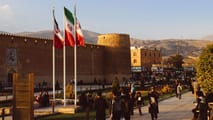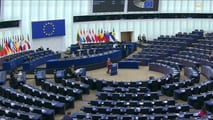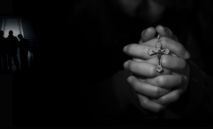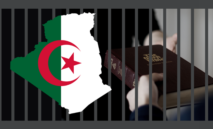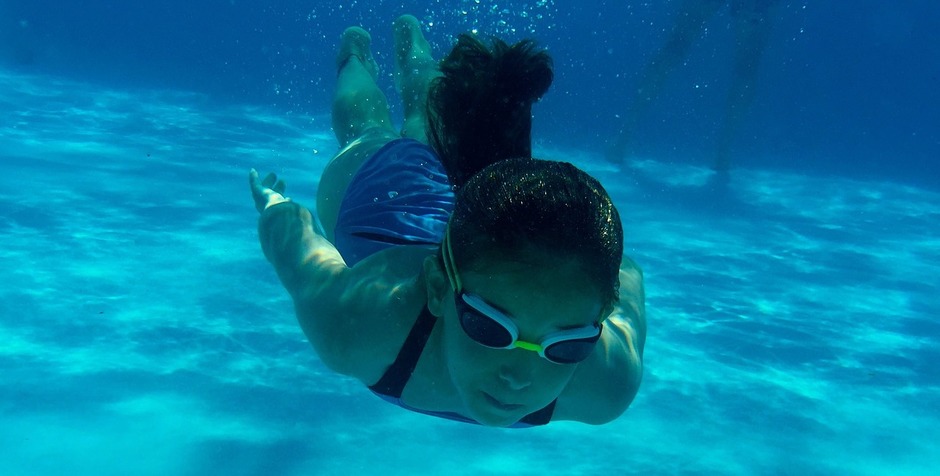

Integration & Parental rights: Comment on Osmanoğlu v. Switzerland Judgment
Integration & Parental rights
When in Rome, bathe as the Romans bathe
On 10th January 2017, the European Court of Human Rights (hereinafter, the Court), ruled on a case about the obligation made to parents, as part of their daughters’ schooling, to send the latter to mixed swimming pool classes despite their religious convictions which are opposed to this (Osmanoğlu et Kocabaş c. Suisse, n° 29086/12).
Cultural diversity in Europe would be, according to some, a luck and a wealth and it would be prejudicial to deprive ourselves of it. But when this “diversity” “concretely” manifests itself and becomes “visible”, how do we address it? In this case, was it legitimate for Muslim parents to refuse to send their daughters to compulsory mixed swimming classes in the name of their religious convictions?
No, is the answer of the Court in its judgment consistent with the decision of the Swiss Supreme Court of 7th March 2012: a successful integration needs a full compulsory education. The parents had invoked a violation of their right to freedom of thought, of conscience and of religion (article 9 of the Convention) and while the Court recognises there has been an interference with their right, it considers that there was a legitimate goal justifying it: integration.
A priori, for those who worry about the increasing place of Islam in Europe, this decision could be a cause of satisfaction. But seeing the motives of the Court to rule that way, it is more about a non-legitimate interference in the convictions of this family in the name of contingent collective values. Such an interference can in the long term touch every conviction which is not in line with those of our contemporary societies.
Of assimilationist inspiration, the Court justifies its decision by a dangerous statist reasoning, which violates the right of parents to educate and teach their children according to their convictions (I), while redefining the role of school and teachers (II).
I. Violation of the right of parents to educate their children according to their convictions
A. A complete schooling is compulsory
Switzerland having not ratified Article 2 of the 1st Protocol of the European Convention on Human Rights, which guarantees the respect by the State of the right of parents to educate and teach their children according to their religious and philosophical convictions, the parents could not invoke a violation of that right. They only invoked their freedom of religion (article 9), and not also a violation of their daughters’ private life (article 8). Hence the general principle of natural and international right[1], according to which parents are the ones primarily responsible for the education of their children, has not been directly invoked in this case (§ 35). It is yet a principle of natural law; parents having begotten the children are primarily responsible for their education and teaching. Whichever their religion, this right applies to everyone for it is natural. It is this position of St Thomas Aquinas that the ECLJ reminded in its written observations in a case concerning home-schooling.
In its application of principles, § 97, the Court poses a principle of “the interest of the children in a full education” to support its refusal to let the parents remove their daughters from the swimming classes. As such, this statement is contrary to the freedom of parents to teach and educate themselves their children. It is also unfortunately consistent with the jurisprudence of Konrad v. Germany, which considers it legitimate for Germany to completely prohibit home-schooling. Applying neither natural right nor article 2 of the 1st Protocol, the Court does not accept an “exemption” for a specific lesson, exemption that it had accepted to give in a Grand Chamber ruling (Folgerø and others v. Norway) where it was about compulsory Christian moral classes.
Yet one must remember that public or private schools only contribute by delegation to helping parents in this educative task. A society is truly liberal only when people and intermediary bodies take precedence over State. The respect of parental authority and of the right for parents to teach their children according to their convictions is a guarantee against the statist totalitarianism. Even if the choice of the parents can be questionable, as a matter of principle, it is better to tolerate a moderate evil than to condemn parents and jeopardise their natural right. If parents indoctrinate their children, then “only” their children are concerned, whereas if the State has a stranglehold on teaching, it can indoctrinate all children.
Besides, if “the right to freedom of religion as understood by the Convention excludes any appreciation from the State as to the legitimacy of religious beliefs or on the mode of expression of them” (§ 85), how is it possible to judge the legitimacy of having a complete scholarship prevail on the exemption of swimming classes? The Court manages in this ruling to judge the interference of Switzerland in the religious reason of parents without ever ruling on the religious reason of the withdrawal in itself. The Court does not appreciate the religious and moral reasons of the withdrawal.
While the parents claimed their daughters practised that sport in a setting in accordance with their convictions, the Court obliged the pupils to take part in absolutely every school subject by an egalitarian reasoning. It considers that “exempting children whose parents have the financial means to provide them with a private tutorship would create an ineligible inequality in compulsory education compared to children whose parents do not have such means” (§ 100).
On the basis of complete scholarship, the Court unanimously justified the State’s action to coerce someone to make a positive act (coming to a swimming class) against his own will for fear of a fine. According to it, the successful integration and a full school curriculum are achieved through a violation of the respect to freedom of religion.
B. About local customs and traditions
In this case, the two Muslim girls did not seek to impose anything on anyone but wished not to take part in an activity. It is not about refusing teaching for girls, school, diversity in general, not even sport in itself, but only mixed swimming classes. The parents did not want their daughters to be in swimming suits with boys, and did not want them to be the only ones wearing a burkini. They wanted them to be exempted from this lesson only, because of their convictions, and it objectively did not violate the interests of neither the children nor the other pupils, not the teacher, nor even of the school in general.
This conviction faces local customs and traditions which make it normal, in the beginning of the XXIst century in Switzerland, for children to have mixed swimming classes in one or two piece swimming suits. On this point it is important to remind that customs have changed a lot… and continue to change. “it was not until about 1950 that the term “mixed” appeared as a substantive in reference to mixed school. The Grand Larousse encyclopaedic of 1963 expresses the dubious perception of this word: “Mix: n.f.- State of a school where girls and boys are admitted. Some educators have doubts about the effectiveness of mixed schools” [2].
50 years ago, it was very rare for States to organize mixed swimming classes. As for the future, nothing prevents one from thinking that in the name of gender equality, other activities or practices which are shocking today but seen normal tomorrow couldn’t be settled.
If the evolutive local customs and traditions are the ultimate criterion taken into account by the Court to impose a practice on parents, how can one live according to deeply-rooted and timeless convictions? It amounts to having to obey zeitgeist.
If they are not isolated among Muslims[3], the position taken by the parents was still hard to justify. The swimming classes in the Canton of Basel are supposed to be mixed only until puberty of the children (12 years of age), which diminishes the argument of the violation of the sense of modesty. It was possible for them to wear a burkini (§ 47), but this proposition would have stigmatised the young girls even more to all, by some sort of special derogatory regime.
This highlighting of a complete curriculum for a successful integration can be explained by a redefinition of the role of school.
II. The aim of swimming is the “vivre-ensemble”[4] and diversity
In its decision, the Court overestimates the value of a swimming lesson. For sport, as it is known since 1998 and the victory of a “Black, Blanc, Beur” [5] team, is the key to integration.
The Court repeats in two paragraph that the main purpose of the swimming lesson is not to learn to swim but to practise that activity together: “However, the interest of this course is not limited for children to learning to swim and exercise, but it is above all in the practice of this activity in common with all the other pupils” (§ 98); “The Court reiterates what it has observed above, namely that it is not merely a question of children engaging in physical activity or learning to swim - legitimate objectives in their own right - but, more importantly, learning together and practicing this activity in common” (§ 100).
This a crucial standpoint, because the Court reassigns the role of a school subject: the role of swimming classes is less learning how to swim than “especially” to practice this activity together, to learn together; despite the fact that swimming is essentially an individual sport.
This decision strengthens the sanctuarisation of public schools which are becoming a tool for social and cultural standardisation which one then qualifies as “integration”. Faced with this sanctuary, there is a genuine conscientious objection motivated by a religious conviction which causes a refusal to act positively. To force somebody to act against their convictions is more serious and more violent than to prevent somebody from acting positively according to their convictions.[6] For example, it is more acceptable or less serious to ban the wearing of the hijab at school than to force a Muslim to eat pork. To punish parents for having refused that their daughters go to the swimming pool is no different than punishing them for refusing to allow their daughters to eat pork. Food, wine and meats also constitute part of the local customs and traditions and one could therefore think we could oblige Jewish, Muslim and Mormon people to join us and do the same, in the name of integration… just as Christians were forced to throw grains of incense towards statues of the Emperor in the name of the unity of the city. People have the right to be left in peace, they have not demanded special developments (for example an à la carte menu in the canteen), but simply to be exempted from a particular class for a reason which does not harm anybody.
In light of the facts of the case, the argument of integration leaves one in doubt as the father of the two young girls is a Turk who arrived in Switzerland at the age of 10. He completed his studies there, went back to Turkey to get married and returned to Switzerland with his wife in 1999 in the context of family reunification. These are Swiss immigrants both fluent speakers of Swiss-German and their three daughters were all born in Switzerland and each completed the entirety of their education there. According to contemporary right-thinking, these young girls are “Swiss like the others”, then why speak of integration? In reality this family is integrated, it really is a question of social regularisation.
There is in this instance a contradiction with the liberal philosophy of the Court: if one lives in a democratic liberal Europe where “religious pluralism” is “vital for the survival of democratic society”, why is there a limit once one uses a simple right of withdrawal? Can one really believe that the success of the girls’ integration was put in danger by their withdrawal from a swimming class? One gets the impression that the Court advocates religious pluralism without wanting its consequences.
Europe is in a cultural turmoil: not only does it face the arrival of a massive number of people of different roots, cultures, and values, but additionally the West itself is extinguishing its own morality and dividing itself on a multitude of social subjects. This cultural disorder is calling for order and this judgment of the Court is taking us towards a secular mandate maintained by a strong State which overrides personal freedoms. Faced with the cultural challenge posed by Islam in Europe, it is vital not to renounce our principles just because a logic of balance of power will not allow the protection of justice.
Translation by BMG.
[1] “Parents have a prior right to choose the kind of education that shall be given to their children” Universal Declaration of Human Rights, art 26. 3.
[2] Geneviève Pezeu, « Une histoire de la mixité », Cahiers pédagogiques, n° 487 - File « Filles et garçons à l’école ».
[3] « Sondage : Les Français très majoritairement contre le burkini, tandis que Manuel Valls désavoue Najat Vallaud-Belkacem », Media-Presse.Info, 25 August 2016, available on: http://www.medias-presse.info/sondage-les-francais-tres-majoritairement-contre-le-burkini-tandis-que-manuel-valls-desavoue-najat-vallaud-belkacem/60106/
[4] “Vivre-ensemble” is a French expression very widely used nowadays to convey the idea of “living together” as a group, integrating everyone. It is not clearly defined and can be used in very diverse situations. E.g.: there has been a terrorist attack? We need more “vivre-ensemble” for people to feel integrated in the society and to avoid them from becoming terrorists. Or there are problems in schools in difficult suburbs? We need more “vivre-ensemble” and to mix social categories more.
[5] Black, Blanc, Beur (meaning black, white, Arab) or “white, brown and black”, meaning that the French football team is a symbol of the “vivre-ensemble” and representative of the diversity in France.
[6] This refusal could also be compared to the objection of parents towards a blood transfusion for their child. But in this case, it involves a question of life and death for the child; and if his interest requires it, it could accordingly be legitimate to override the objection of the parents. Yet here the parents’ conscientious objection does not put the interest of the children strictly in danger.


